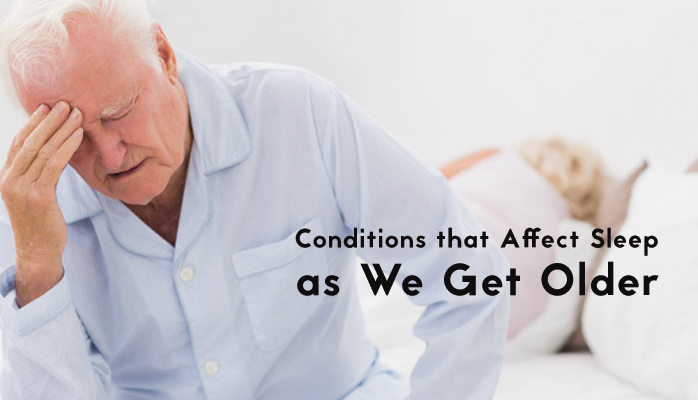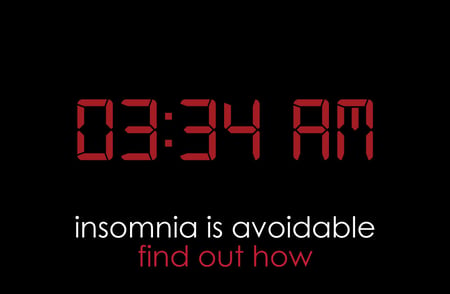What Happens to Sleep As We Age?
As an adult, you should be averaging between 7-9 hours of sleep every day. This doesn't necessarily mean at night, but just throughout the day. People who sleep 4-5 hours at night will need to supplement their sleep with naps in order to get their necessary sleep. Getting the requisite 7 hours becomes more difficult with age. If you are over 65 years old and having trouble sleeping, it may be because your sleep pattern changes as you age, and after 65 years of age, getting 7 straight hours of sleep may seem extremely difficult.
Generally speaking, as you get older your sleep pattern changes in the following ways:
- You will likely sleep less than 7 hours at night
- Your sleep may feel less restful during the night
- You may be more inclined to nap
- The times that you go to bed and wake up will also likely change
While your pattern might change, your need for getting a certain amount of sleep won’t. These changes happen for life reasons (stress, children, jobs), hormonal changes, and natural physiological changes that make you more susceptible to certain sleep disorders.
Obstructive Sleep Apnea
Obstructive sleep apnea is one sleep disorder that is much more common in us as we get older. Obstructive sleep apnea (OSA) occurs when your upper airway becomes blocked while sleeping. This happens because the breathing muscles in
- The breathing muscles in the back of your throat relax, causing the back of your throat to collapse fully or partially
- Once collapsed, your airway can be blocked by the back of your throat, your tonsils, or your tongue.
- Then, you will not breathe for a period of time and have to rouse yourself to wake up
- Each blockage, not breathing, arousal cycle is called an apnea, or apnea event
You will not remember your apnea events in the morning, and this can happen dozens to hundreds of times per night.
Some of the most common symptoms of obstructive sleep apnea are:
- Loud snoring
- Restless sleep
- Morning headaches
- Severe daytime sleepiness
- Chronic irritability
OSA is a serious medical condition with significant consequences that should not be ignored.
Insomnia
As we age, our sleep cycles change – especially in how we get sleep. People over the age of 60-65 are more likely to have insomnia and report trouble with sleep. These uncomfortable changes are because as we age we tend to go to bed earlier and wake up earlier.
People who suffer from insomnia either have difficulty falling asleep, staying asleep or wake up way too early with an inability to get back to sleep.
As you age and your sleep changes, you can exhibit such symptoms. Throw in hormonal change as well, and your history of excellent, sleep-full nights can be seriously disrupted to the point of formal insomnia diagnoses by your doctor.
Restless Leg Syndrome
Restless leg syndrome (RLS) is a nervous system disorder that causes discomfort in your legs (and other extremities) that is uncomfortable enough to interfere with sleep. When the discomfort is enough to keep you up or wake you up, it is considered a sleeping disorder. Some of the symptoms include feeling the following on your legs at night:
- Aching, throbbing, or burning
- Cramping (especially in calves)
- Jerking
- Buzzing or vibrating feelings
- Itchy feeling
- Feeling of pins and needles
- Creepy crawly feeling
- Irresistible urge to move your leg to relieve the discomfort
RLS is most common in middle aged and, especially, elderly people, and is caused because of the following:
- Genes
- Certain diseases include symptoms of RLS, such as anemia, Parkinson’s, and diabetes
- Common medications
Circadian Rhythm Disorders
Your circadian rhythm is your biological clock. It runs in the background of your brain and manages and regulates your cycle of sleep and wakefulness. It’s also known as your sleep wake cycle.
There are many factors that can interrupt your biological clock, such as extreme lighting conditions, jet lag, shift work, and so on. Your circadian rhythm may undergo major changes as you age for no apparent reason.
In this case, you might notice that your natural cycle changes dramatically: you may go from being a fairly light night person to more of a morning person, for example.
If any of these disorders sound all too familiar, consult with your doctor or a sleep specialist.



